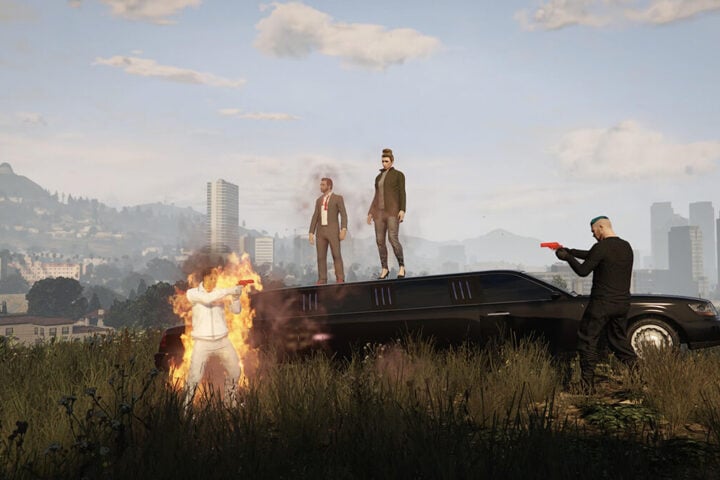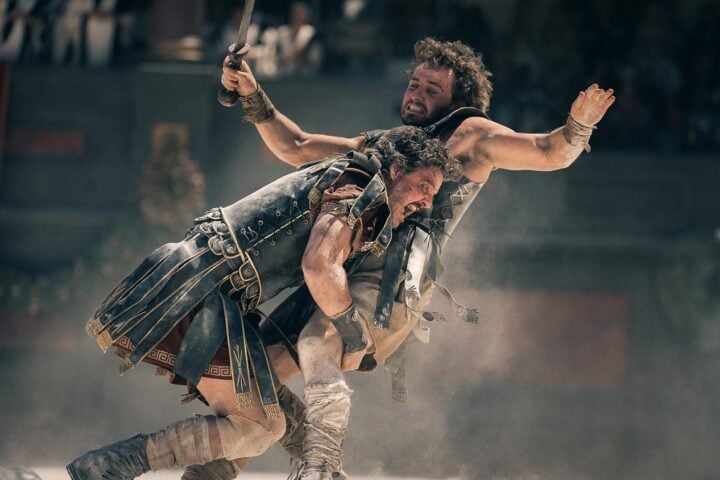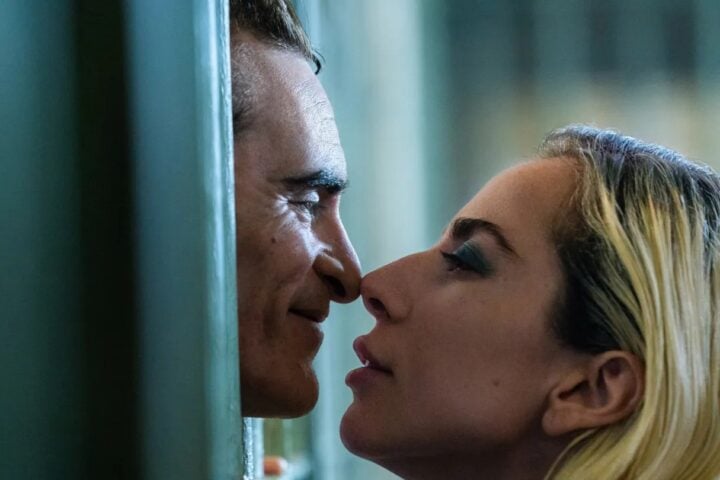Ridley Scott’s Napoleon opens in 1793 as a revolutionary rage courses throughout France. The camera tracks a ragged yet prideful Marie Antoinette (Catherine Walker) making her way toward her executioners as commoners hurl insults and tomatoes at her. This sequence kicks off the film with a propulsive energy that instantly keys us to the rowdy spirit of the times. Unfortunately, as soon as the guillotine drops, Napoleon shifts into traditional historical biopic mode, dutifully touching on major events like the Reign of Terror and the royalist insurrection, but only in the most compulsory, disinterested manner.
This Wikipedia rundown of sorts may just be a way to get Napoleon Bonaparte (Joaquin Phoenix) front and center a little earlier, but it’s a recurring problem in Scott’s film. In covering a period of nearly 30 years, Napoleon often feels rushed and overstuffed with incident. When we get to virtually any of the battle scenes, it’s clear that those are what drew Scott to making this film. Napoleon’s campaign in Egypt climaxes in a visually sumptuous, albeit short, battle close to the Giza pyramids, while the Battle of Waterloo has all the epic splendor that one could hope for in a fight that ended the career of the world’s most famous general.
It’s the snowy Battle of Austerlitz, though, that’s the film’s most impressive sequence. Its jaw-dropping sense of scale, balancing of focus on brutal chaos and brilliant tactical maneuvering, and white-knuckle tension are a reminder that Scott is a master at organizing giant set pieces. Would that the rest of the film didn’t sink into listless mediocrity. Like much of Scott’s recent work, Napoleon bears the marks of a filmmaker who’s content to coast on his laurels, an impression bolstered by the comically surly interviews that he gives during each new press cycle.
Speaking of comical, there are a number of funny scenes in the film, most of them poking fun at the eponymous general-turned-emperor’s insecurities and domineering behavior. “You think you’re so great because you have boats!” Napoleon screams at one point to an English general who refused his peace offering. No less funny is the moment when he condescendingly chides his wife, Josephine (Vanessa Kirby), by saying in all seriousness, “I’m not subject to petty insecurities.” But while these moments may rouse your laughter, the film’s tonal shifts from the humorous to the somber to the melancholic are consistently discordant.
By contrast, Phoenix’s performance is nothing if not consistent, for better and for worse. He plays the emperor as a feeble cuckold whose undying need to accumulate power is matched only by the power that Josephine and his mother wield over him. But, at times, it feels like Phoenix may have stumbled right off the set of Ari Aster’s Beau Is Afraid and popped on the bicorne hat that Napoleon wore during battle right before the cameras started rolling. So crippling are Napoleon’s mommy issues, his rising paranoia, utter lack of self-awareness, and constantly meek mutterings that the parallels between the two characters become almost distracting.
Phoenix is going all in on the comedy, which might have allowed the film to soar had Scott met the actor at his level. Which is to say, don’t expect from Napoleon something akin to the playful levity of Sofia Coppola’s Marie Antoinette or the brilliantly sustained archness of Stanley Kubrick’s Barry Lyndon. More times than not, the film’s bursts of humor clash awkwardly with the far more frequent attempts at gravitas that the filmmakers strive for when our protagonist is in battle or engaged in political discussions, or when the script is exploring the emotional turmoil generated through Napoleon’s tumultuous, complex relationship with Josephine.
In the end, this portrait of Napoleon as a kind of ineffectual, uncharismatic doofus is at odds with his ability to inspire a nation to believe in him and his troops to willingly follow him into the harshest of environments and lay down their arms when he later illegally returned home from exile. The film gives us a clear sense of Napoleon’s inflated vanity and self-doubt, but it’s so intent on ridiculing him that one wonders why Scott and screenwriter David Scarpa insisted on making this a sweeping epic that covers so much of his life—his victories and follies alike.
Since 2001, we've brought you uncompromising, candid takes on the world of film, music, television, video games, theater, and more. Independently owned and operated publications like Slant have been hit hard in recent years, but we’re committed to keeping our content free and accessible—meaning no paywalls or fees.
If you like what we do, please consider subscribing to our Patreon or making a donation.







I need some more reviews to read since I had high hopes for this, but this one is a troubling sign that Scott is still up to his old tricks, that is to say, just not giving a damn.